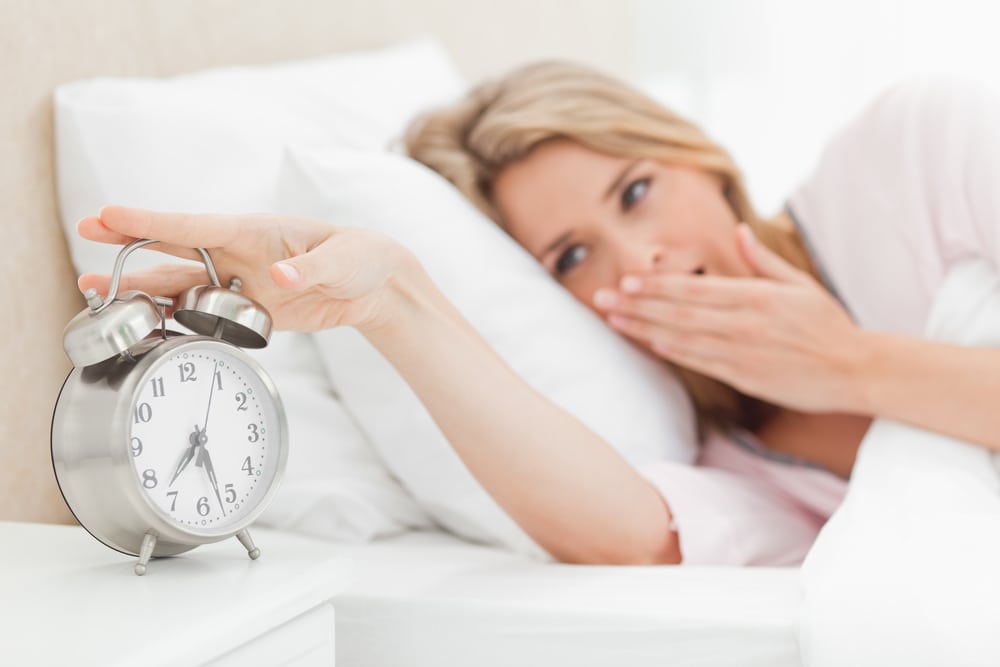Does lack of sleep age you? Yes, it would seem it does.
It has long been understood that there is a link between poor sleep and the health of the skin. For example, we all know from looking in the mirror that a poor night’s sleep gives us bags under the eyes. Recent studies have started to show a more direct correlation, with exploration of the science and physiology involved. So, does lack of sleep age you? Yes. Read as to how this happens, and what you can do to combat this…
A study commissioned by Estee Lauder, led by Dr Elma Baron, showed poor quality sleep was associated with uneven pigmentation, slackening of the skin, reduced elasticity and fine lines. In addition, those in the study who were deemed to have good quality sleep were able to recover quicker from environmental stressors such as environmental toxins and sunburn, and a quicker recovery rate from general cell damage from bumps, erythema and abrasions.
These physical changes in our appearance are largely due to the changing hormonal balance within the body which naturally occur when we are asleep. Two key hormonal changes, which affect the skin when we are asleep, are an increase in Growth Hormone and a decrease in Cortisol levels. Poor quality and quantity of sleep undermine these natural changes.
Growth Hormone and the skingrowth hormone
During the deep phase of sleep, we get an increase in Growth Hormone. One of the Growth Hormone’s functions is to repair damaged cells and stimulate cell production, allowing the skin to recover moisture. Equally skin elasticity will decrease. Without enough sleep, these repair processes start to decrease and show in our skin.
Cortisol levels decrease during sleep
Cortisol is one of our stress hormones, naturally programmed to decrease when we sleep. However, with sleep deprivation we get an increase in this hormone. One of Cortisol’s jobs is to break down old cells. Lack of sleep causes too much cortisol in the body and an increase in cell destruction (aging), rather than cell healing. Lower levels of cortisol allow your skin to regenerate and higher levels of cortisol contributes to the breakdown of collagen (a protein that’s key in helping your skin look young and fresh) and elastic tissue.
Antioxidants
Antioxidant production also increases at night, which can help protect the skin from UV light. One of the long-term effects of these molecules is that they prevent damage from ‘free radicals’, which prematurely age the skin
My Top 5 Tips
1) Change your pillowcases regularly change your pillowcases
Did you know that after a week of use, our pillowcases contain 17,442 more bacteria than a toilet seat! So, always use soft pillowcases and sheets next to your skin and change regularly.
2) Don’t lie face down
Not only is this bad for your neck and back posture but also the severity of your wrinkles.
3) Wash your face
to remove make up and pollutants from your skin to ensure your pores don’t get blocked up.
4) Eat a lot of various fruits and vegetableseat fruits and vegetables
Pick fruit and veg that provide all the antioxidants we need for a healthy body. The antioxidants that help our skin are Vitamin E, Vitamin A and Carotenoids, which are found in Carrots! Other good sources are Kiwi Fruits and Grapes. Berries are a great source of antioxidants, along with nuts. Vitamin C is also important for the skin. Remember scurvy in sailors of old, which was prevented by eating Citrus fruit. If you eat a varied wholesome diet you won’t go wrong.
5) Drink lots of water! drink water
Most of us notoriously don’t drink enough water. Sleep deprivation often produces dry flaky skin. This is because the skin barrier is disrupted, allowinential for good-looking skin. So, make a glass of water your first drink of the day!
So, does a lack of sleep age you? I believe all the studies show the answer is most definitely yes. But don’t worry, follow my top tips to help combat this issue. I hope this article has been helpful, leave me any comments or questions you want answered below.
Finding it difficult to fall asleep? Read my relaxation techniques that will help you sleep here.



